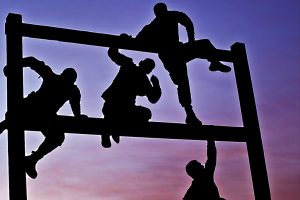It’s a question worth pondering. Is easy indeed always better? The fast, intuitive response might be a resounding “YES”, but given more thought would you change your mind? While easy gets the job done, does it leave us with the same level and sense of satisfaction of overcoming a challenge, something that was hard, something that, because it didn’t kill us, made is stronger? Do we need to feel a sense of accomplishment at overcoming something that was not easy, in order to grow as human beings?
In the words of Margaret Thatcher “Look at a day when you are supremely satisfied at the end. It’s not a day when you lounge around doing nothing; it’s a day you’ve had everything to do and you’ve done it.” And, I might add, exceedingly well in spite of it being exceedingly hard.
Perhaps that is because the level of accomplishment that leads to success and promotes self-esteem requires that you do estimable things. Taking the easy way out does not result in these feelings and does nothing to further predict your ability to undertake great endeavors in the future. This is part of the reason that colleges would rather see a student who takes Calculus and gets a “C” than a student who takes Pottery and gets an “A”. It is because undertaking something that is hard is a better predictor of success than simply achieving something easy.
A look at accomplished individuals who regularly win awards and medals shows that they are driven by the effort rather than the result. It is the striving rather than the reward that is long-lived. The striving, the risk taking, the hard won spoils of war are what build self-esteem, not the awards and trophies that are handed out to both teams, win or lose.
Self-esteem feels good because it calls on the emotion of pride. Pride in turn arises from one’s sense of confidence and capability. Esteem and related emotions instill a sense of success and the confidence that you can accomplish whatever you set out to do.
So, are we cheating ourselves when we take the easy way out? When we cut corners just to get to the result faster? Are we telling our selves that the result is all that matters? I think “yes”. I think striving to do our absolute best against formidable odds, even if we take a few missteps along the way, is better than taking the easy way out. It yields accomplishment rather than simply achievement, it builds self-confidence, and it forms a habit that is a predictor of success for the rest of your life.
